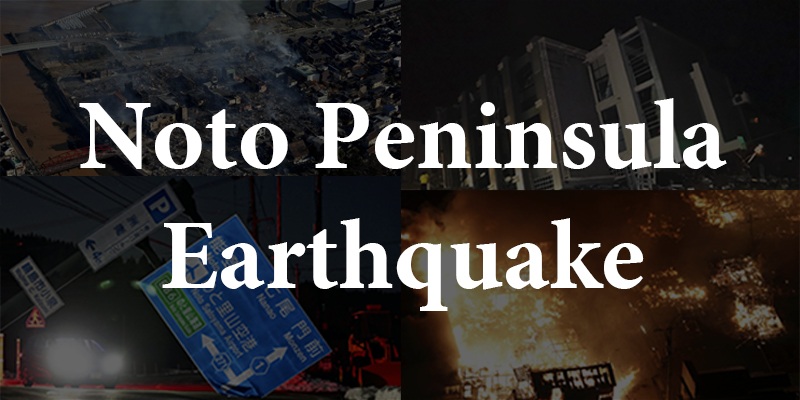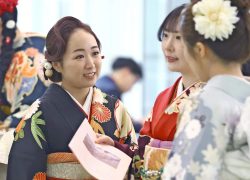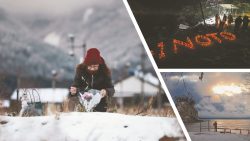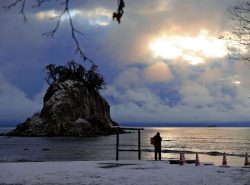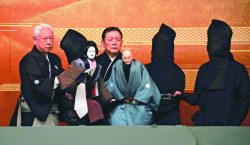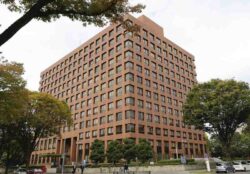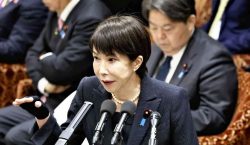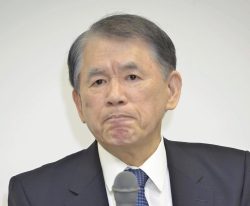Japan Earthquake Survivors Battle Unsanitary Conditions with No Running Water
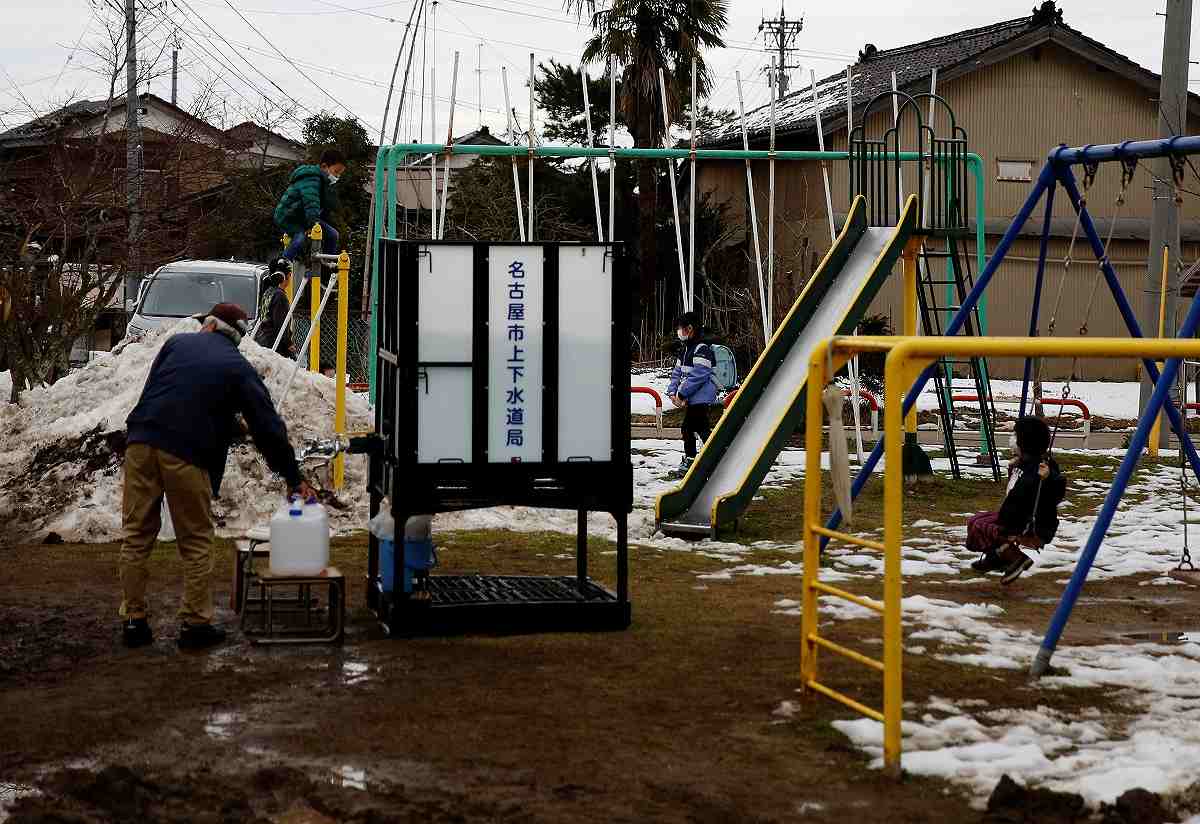
Children play in the playground as a local resident refills a bottle from the communal water tank for Noto earthquake survivors in Suzu, Ishikawa Prefecture, Japan, January 30, 2024.
15:09 JST, January 31, 2024
SUZU, Japan, Jan 31 (Reuters) – A month on from a huge earthquake that struck Japan’s west coast, survivors are battling freezing and unsanitary conditions while tens of thousands of homes remain without running water.
Some areas in the isolated Noto peninsula may not have water restored for another two months, the government of Ishikawa prefecture said, adding to risks for those living in cramped evacuation centers where authorities say respiratory infections and gastroenteritis have been detected.
“There’s no water, so we can’t wash our clothes or bathe,” said Yoshio Binsaki, a 68-year-old resident of the battered coastal town of Suzu, as he prepared to haul a 20 liter (5.3 U.S. gallon) water tank to his car to take home.
More than 230 people died in the magnitude 7.6 quake, Japan’s deadliest in eight years, which also left 44,000 homes fully or partially destroyed while 40,000 have no running water. More than 13,000 residents are living in evacuation centers, according to the Ishikawa government.
Chisa Terashita, a mother of three who evacuated from her wrecked home in Suzu, and her husband said that immediately after the quake they drank as little water as possible to conserve what they had, and still face tough decisions on how to ration water to keep the family healthy.
“The one non-negotiable I have is washing and sanitizing our hands after going to the toilet, given it’s the season when infections can spread quickly,” she added.
Bitter cold is also posing a challenge, especially for scores of residents who are sleeping in their cars after their homes were wrecked. The area was hit by heavy snow over the past week and authorities have warned of a risk of landslides.
“This life is becoming the norm – I think we can get through it,” Terashita said. “Well, we have no other choice.”
Over 900 deaths from the devastating Kobe earthquake of 1995 happened after the quake, due in part to the spread of flu and lack of medical care at evacuation centers, according to public health experts.
Authorities in Ishikawa prefecture are set to begin vaccinating evacuees for influenza on Thursday.
Around mid-afternoon on Tuesday at a primary school in Suzu, where around 4,800 houses still have no water, children played on the swings while locals gathered around a communal water tank that has become a lifeline for many.
As evening fell, residents gathered to bathe in a makeshift public bath set up at the school by soldiers sent in to help with relief work – an improvement from immediately after the quake when people would queue for an hour in the rain for 5 liters of water.
Top Articles in Society
-

Producer Behind Pop Group XG Arrested for Cocaine Possession
-

Man Infected with Measles Reportedly Dined at Restaurant in Tokyo Station
-

Man Infected with Measles May Have Come in Contact with Many People in Tokyo, Went to Store, Restaurant Around When Symptoms Emerged
-

Woman with Measles Visited Hospital in Tokyo Multiple Times Before Being Diagnosed with Disease
-

Bus Carrying 40 Passengers Catches Fire on Chuo Expressway; All Evacuate Safely
JN ACCESS RANKING
-

Producer Behind Pop Group XG Arrested for Cocaine Possession
-

Japan PM Takaichi’s Cabinet Resigns en Masse
-

Man Infected with Measles Reportedly Dined at Restaurant in Tokyo Station
-

Israeli Ambassador to Japan Speaks about Japan’s Role in the Reconstruction of Gaza
-

Videos Plagiarized, Reposted with False Subtitles Claiming ‘Ryukyu Belongs to China’; Anti-China False Information Also Posted in Japan
